Minority groups, civil society, human rights activists, and progressive quarters are concerned about the implications of the recent bill passed by the National Assembly and Senate on August 7, which suggests an increase in the punishment for using derogatory remarks against revered personalities.
Majlis Wahdat-e-Muslimeen Pakistan (MWM) leader Raja Nasir Abbas Jafri expressed concerns about the bill, while Ahle Sunnat Wal Jamaat (ASWJ) leader Ludhianvi supported it. Civil society highlighted concerns about stricter penalties and misuse. The Shia Community protested against perceived oppression. Concerns were raised about the lack of protocols, definitions, and false accusations in blasphemy cases.
On Monday, a nationwide consultative conference organised by MWM, which various Shia organisations and scholars attended, deliberated on the probable implications of amendments to the blasphemy laws in the recently passed bill.
Addressing the conference, MWM leader Maulana Raja Nasir Abbas Jafri highlighted that the bill, titled The Criminal Law (Amendment) Bill, 2023, aims to sow discord within the nation by attacking the principles and unity of Pakistan.
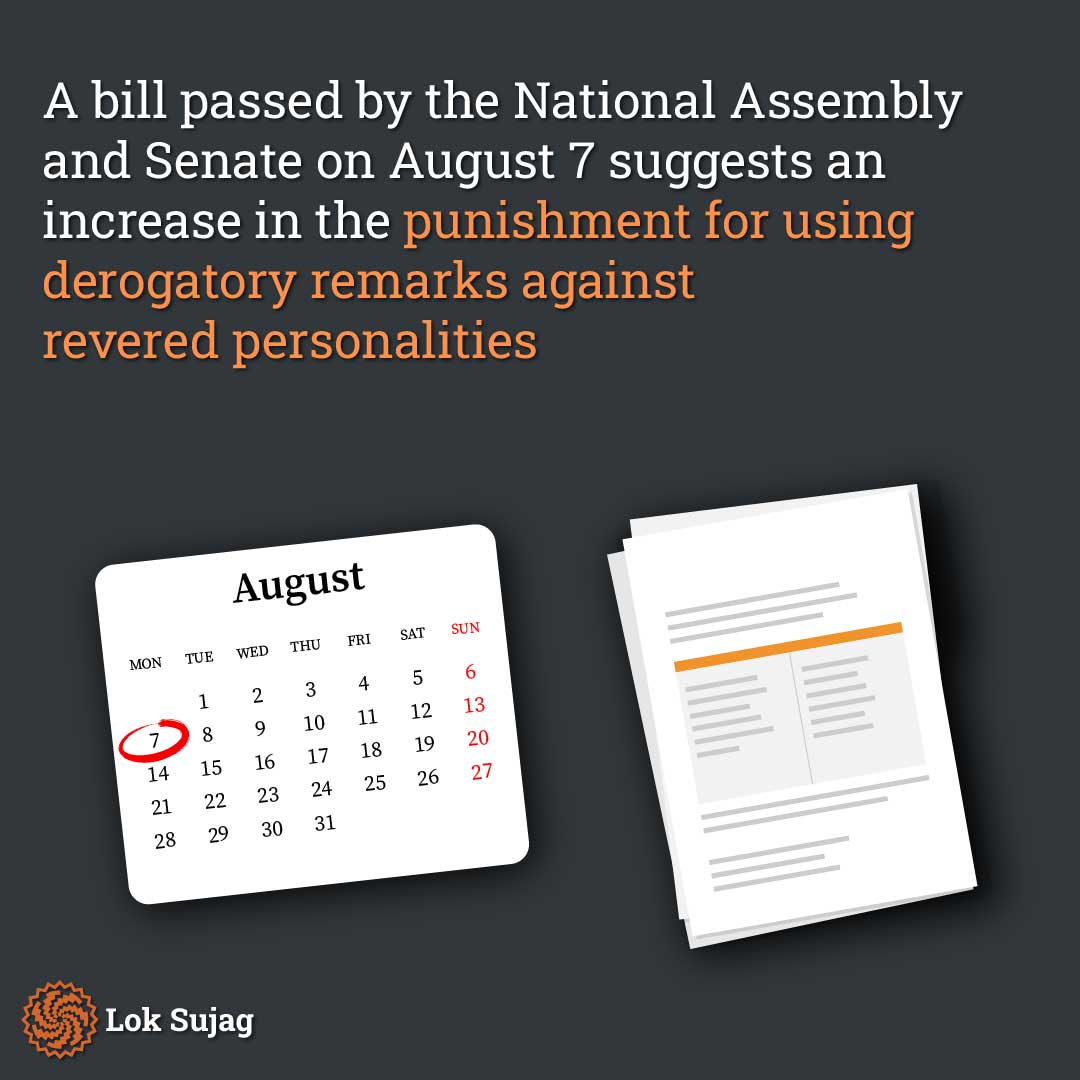
Jafri announced that a national gathering would be held on August 14 in Islamabad, where national organisations and scholars would join hands to counter the alleged conspiracy behind this bill. He pointed out that the bill was presented in secrecy at National Assembly two days before it was dissolved.
On Sunday, ASWJ leader, Maulana Muhammad Ahmed Ludhianvi, led a rally in support following the bill's passage.
Addressing his followers, Ludhianvi expressed satisfaction over the passage of the bill and said that this bill would play a pivotal role in eliminating religious discord from the country. He extended gratitude to all members of the Senate who contributed to the bill's approval, praising their efforts.
He appealed to the government and the influential classes of the country to implement the bill without delay and ensure that Pakistan remains free from turmoil.
A day after the bill's passage, a Joint Action Committee (JAC), including civil society and human rights activists, held a protest. In a statement, they say that the bill doesn't seek to reform blasphemy laws but intends to make them severe.
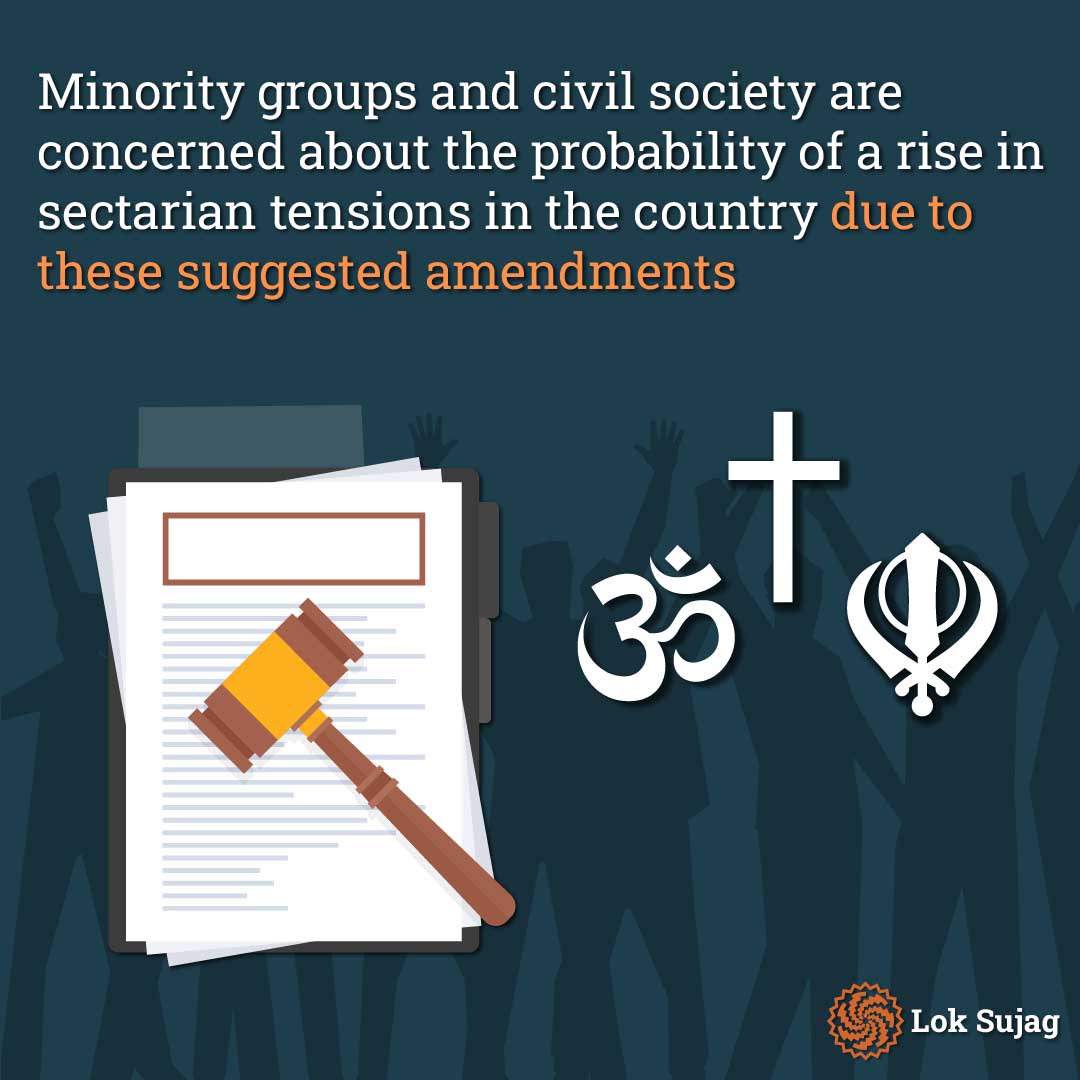
The bill suggests an amendment to Section 298-A of the Pakistan Penal Code (PPC). It also seeks to amend this clause to say that the penalty for this offence should not be less than ten years. It also suggests changing the offence from bailable to non-bailable.
JAC statement says that in Pakistan, where current blasphemy laws are often abused for personal agendas, these changes might further criminalise theological differences and target religious minorities. Unclear definitions of terms like ‘blasphemy' and 'companions' create room for misinterpretation and misuse.
The Shia Community, representing about 20 per cent of the population, perceives the bill as an attack on their religious liberties. Since August 2020, many Shia individuals have been charged with blasphemy, leading to arrests. Amplifying the penalties of this law could worsen the oppression of the Shia sect, the statement reads.
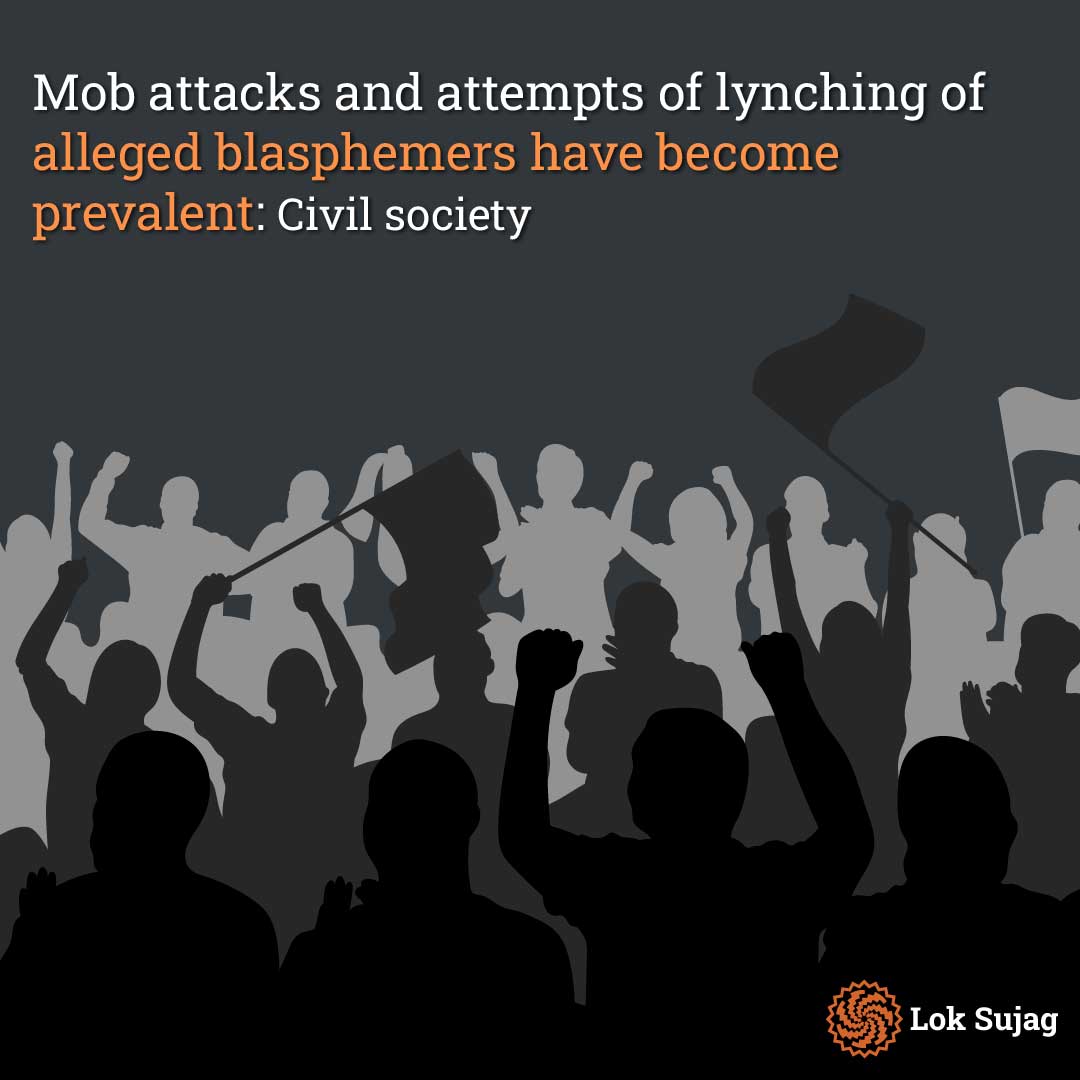
The protesters said the bill's passage raises significant concerns due to the lack of proper protocols in both houses. The bill was not thoroughly debated in the standing committees of human rights or religious affairs at the National Assembly level. It was passed on a day when the assembly's quorum was incomplete, with only 25 members' signatures. The bill wasn't even sent to the Senate committees, despite some senators, including Pakistan Peoples Party’s (PPP) Sherry Rehman, highlighting the need for it.
The statement issued by the JAC reads: the rights granted to citizens by Articles 19 & 20 of the constitution of Pakistan to freely profess, propagate and practice faith has been violated drastically against sectarian minorities, especially the Shia community, in the past two years. Hundreds of blasphemy cases have been lodged against the members of the sect for merely proclaiming their beliefs and carrying out religious rituals. Followers of the defunct outfit workers storm the police stations in the form of mobs and stage violent protests until the registration of the FIRs against Shia members.
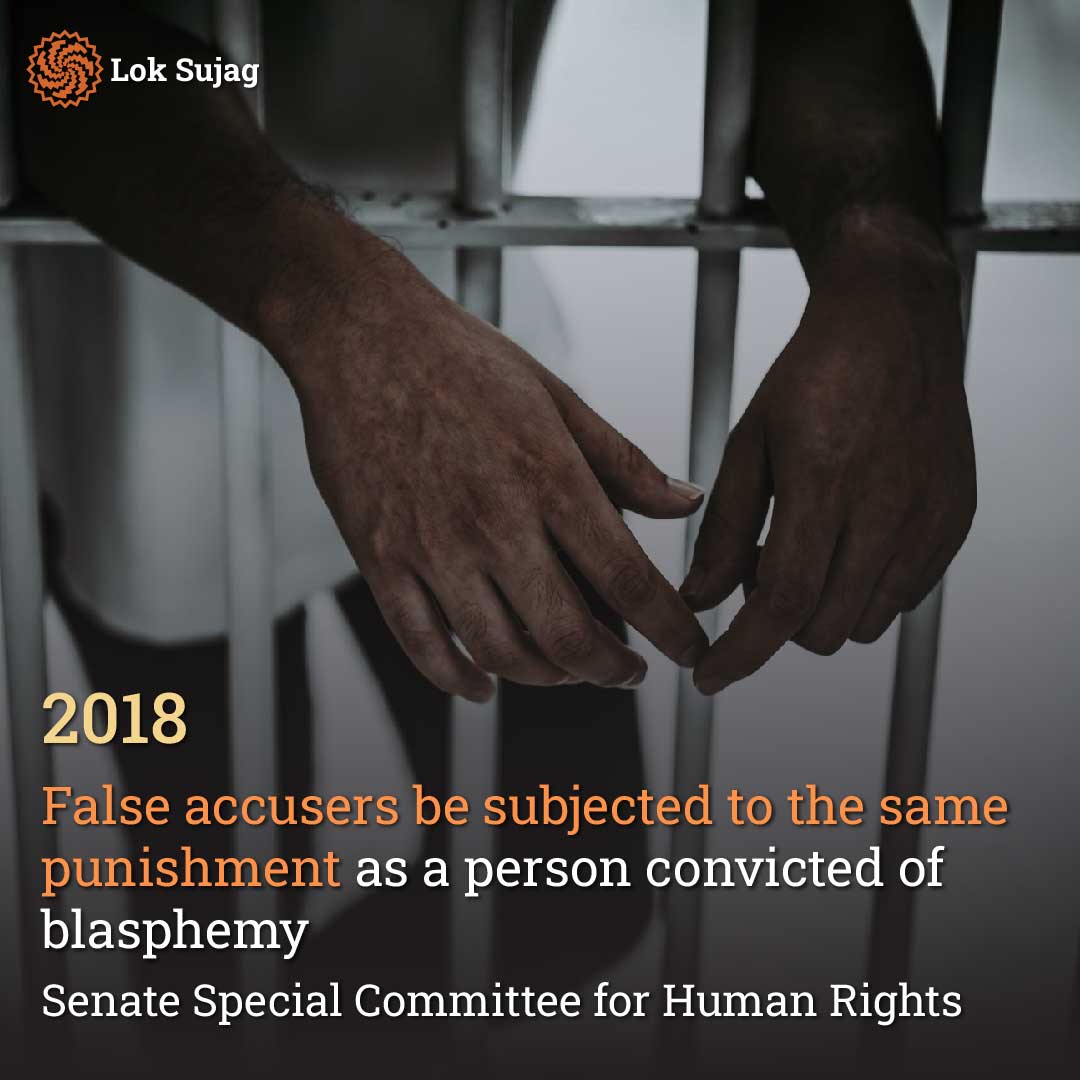
Highlighting blasphemy cases, the civil society stated that blasphemy cases also have a strong correlation with violence in society. Mob attacks and attempts of lynching of alleged blasphemers have become quite prevalent, for example, the murders of Mashal Khan, Priyantha Kumara, and Tahir Khan, to name a few.
In Kohat, a student was a victim of attempted lynching by fellow students on accusations of blasphemy. He was narrowly saved from being burnt alive due to the intervention of the college administration.
According to JAC, blasphemy defendants are also denied sufficient legal representation due to mob pressure. The attorneys of the accused are threatened and forced to step back from the cases. Advocate Rashid Rehman and Judge Arif Bhatti were murdered for advocating for and ruling in favour of alleged blasphemers.
Also Read
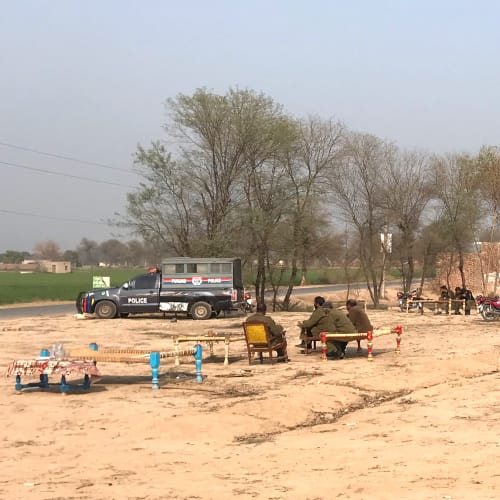
Mob lynching over blasphemy allegations in Khanewal: The story of a death foretold
A year ago in Mirpur, the bar membership of four lawyers was cancelled for representing an accused blasphemer belonging to the Shia sect. On the day when the judge granted bail to the defendant, the bar lawyers stormed the judge's room to stage a protest in the court until the bail notice was suspended. This lack of free trial and the threat to life violates clauses of the United Nations Treaty of International Covenant on Civil and Political Rights (ICCPR) that Pakistan ratified in 2010.
They said that the persecution of minorities and the blasphemy law is widely used to settle personal scores. The Supreme Court of Pakistan also highlighted this in the verdict of Malik Muhammad Mumtaz Qadri v the State case in 2015: “The majority of blasphemy cases are based on false accusations stemming from property issues or other personal or family vendettas rather than genuine instances of blasphemy and they inevitably lead to mob violence against the entire community.”
The civil society activists said that no consequence for false accusations has also been a reason for the misuse of the blasphemy laws. In 2018, the Senate Special Committee for Human Rights recommended that false accusers be subjected to the same punishment as a person convicted of blasphemy. However, one of the committee members, belonging to JUI-F, opposed the recommendation.
Published on 9 Sep 2023



















